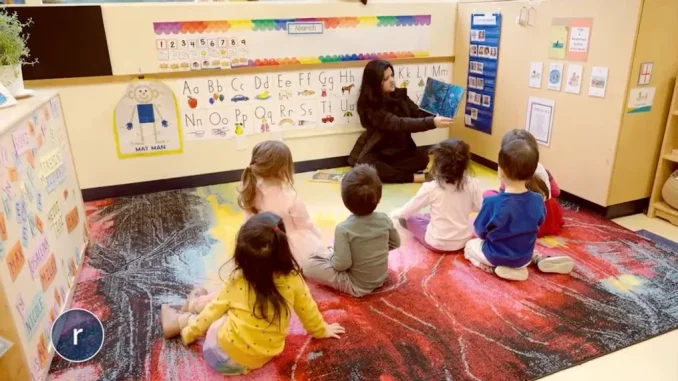
Introduction
In the realm of early childhood education, the term “play” often conjures images of carefree children engaged in fun and games. While play is undoubtedly enjoyable, its significance extends far beyond mere amusement. In recent years, educators and researchers have been reevaluating the role of play in early childhood education, recognizing it as a powerful tool for holistic development. This article delves into the transformative potential of play in rethinking and reshaping early childhood education.
The Essence of Play
Play is an intrinsic aspect of childhood. It’s how children make sense of the world around them, develop critical skills, and lay the foundation for their future. Unlike structured learning environments that emphasize academic achievements, play is a spontaneous, self-directed, and joyful activity that can encompass a wide range of experiences, from building sandcastles to pretending to be superheroes.
Cognitive Development
Play is not just idle pastime; it’s a cognitive workout for young minds. When children engage in imaginative play, they are solving problems, making decisions, and experimenting with various scenarios. These activities stimulate their critical thinking skills, enhance memory, and foster creativity. For example, playing with building blocks helps them understand spatial relationships and develop math and engineering concepts.
Emotional Development
Through play, children explore their emotions and learn to manage them effectively. When they engage in role-playing games or imaginative scenarios, they experience different feelings and practice empathy. They also learn to regulate their emotions, which is essential for building emotional intelligence and social skills. Play provides a safe space for children to express their emotions, whether it’s joy, frustration, or fear.
Social Development
Play is inherently social. It encourages children to interact with their peers, negotiate, cooperate, and resolve conflicts. In group play, children learn about teamwork, compromise, and communication—all vital skills for building healthy relationships later in life. Play allows children to experiment with social roles and develop a sense of identity within a community.
Physical Development
Physical activity is an integral part of play. Whether it’s running, jumping, climbing, or dancing, play promotes physical fitness and coordination. It also contributes to the development of fine and gross motor skills, which are crucial for tasks like handwriting and using tools. In a world increasingly dominated by screens, play serves as a counterbalance to sedentary habits, promoting a healthier lifestyle.
Language Development
Language skills flourish in the context of play. Children engage in storytelling, engage in dialogue with their peers, and use language to negotiate and collaborate. Play allows them to experiment with vocabulary, syntax, and communication strategies, ultimately laying the groundwork for strong literacy skills.
Rethinking Early Childhood Education
Understanding the multifaceted benefits of play challenges conventional notions of early childhood education. Instead of prioritizing formal instruction and academic pressure, educators are now focusing on creating environments that promote play-based learning. Here are some key considerations in rethinking early childhood education:
Play-Centered Curricula
Curricula should be designed to incorporate play as a central element. This involves providing materials and resources that encourage open-ended exploration and creativity. Teachers can act as facilitators, guiding children’s play, and linking it to educational objectives. For example, they can turn a sandbox into a mini-geology lesson by introducing different types of sand and discussing their properties.
Teacher Training
Educators need training to understand the value of play and how to effectively support and document children’s play-based learning. This includes recognizing the educational potential in various types of play, from pretend play to sensory play, and using play as a vehicle for academic subjects.
Evaluation and Assessment
Traditional standardized testing may not be suitable for assessing play-based learning. Instead, assessment should focus on observing children’s progress, documenting their development through play, and evaluating their problem-solving and critical thinking skills. This allows for a more holistic understanding of a child’s capabilities.
Parental Involvement
Parents play a crucial role in supporting play-based education. Schools and educators should communicate the importance of play to parents and provide guidance on how to incorporate play into daily routines at home. This partnership between schools and families can reinforce the benefits of play in a child’s development.
Conclusion
The power of play in early childhood education is undeniable. It is not an obstacle to academic achievement but a powerful tool for fostering cognitive, emotional, social, physical, and linguistic development. By rethinking early childhood education to prioritize play-based learning, we can empower our children with the skills and qualities they need to thrive in an ever-changing world. Play, after all, is not just a childhood pastime; it is the foundation upon which lifelong learning and growth are built.